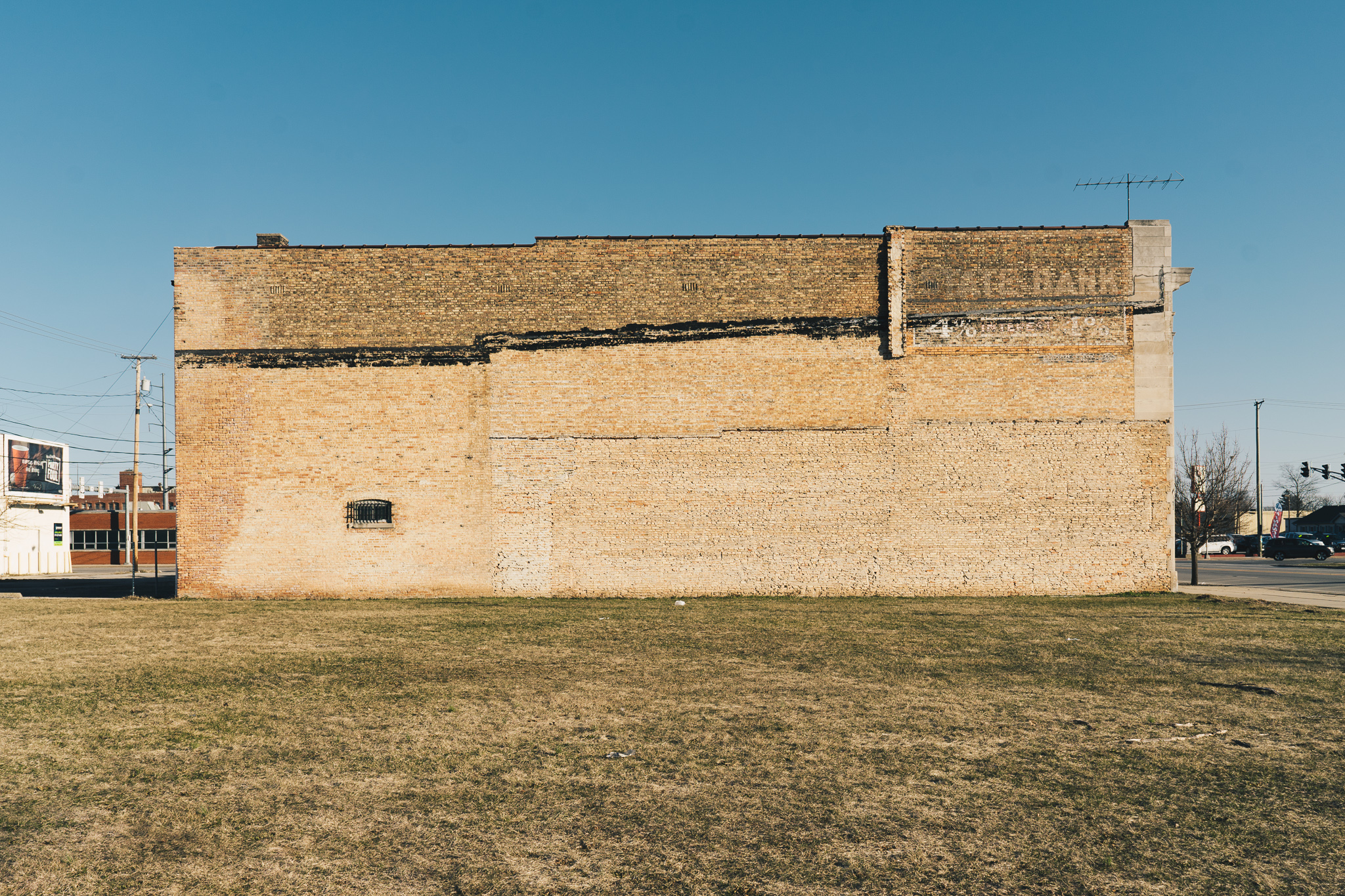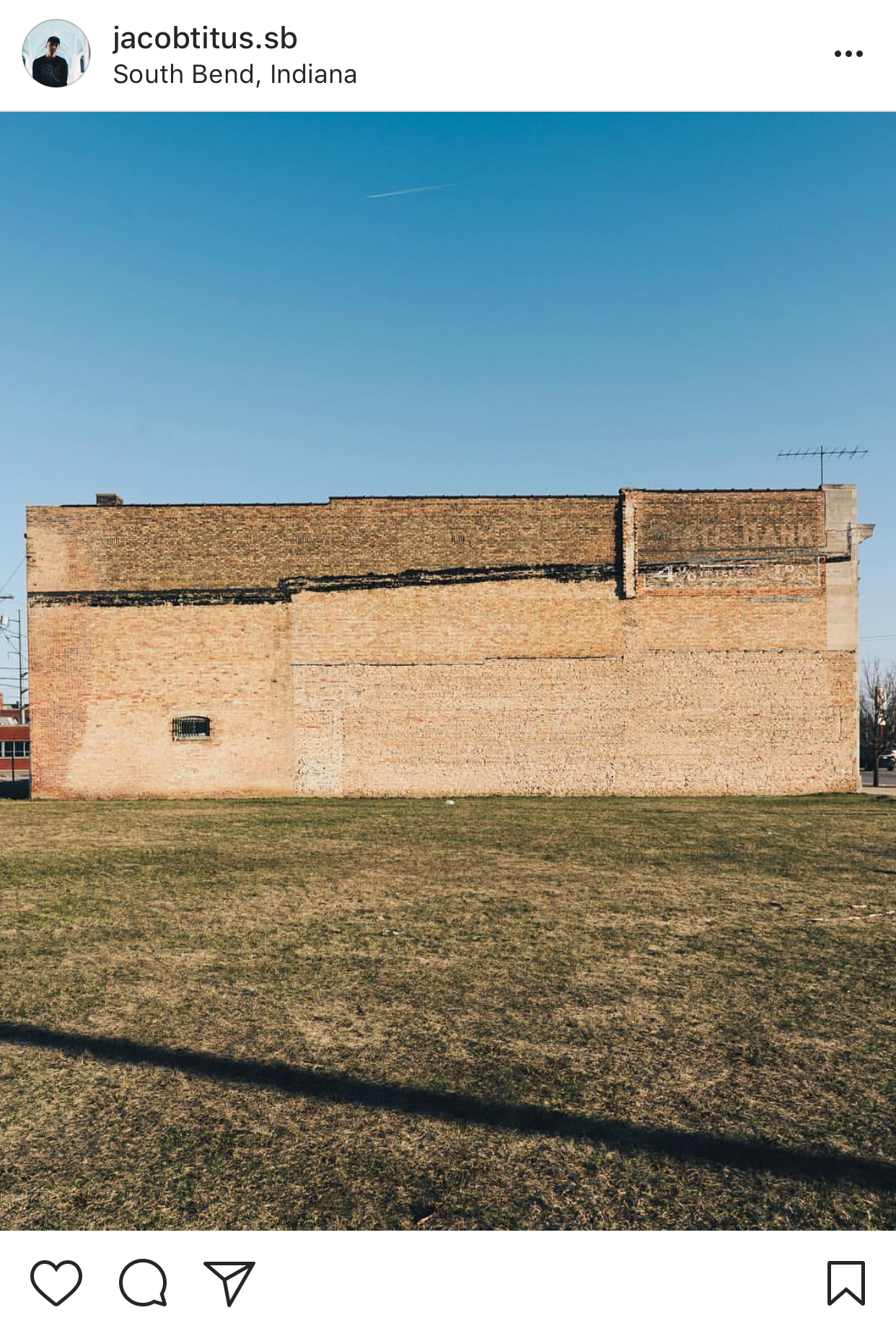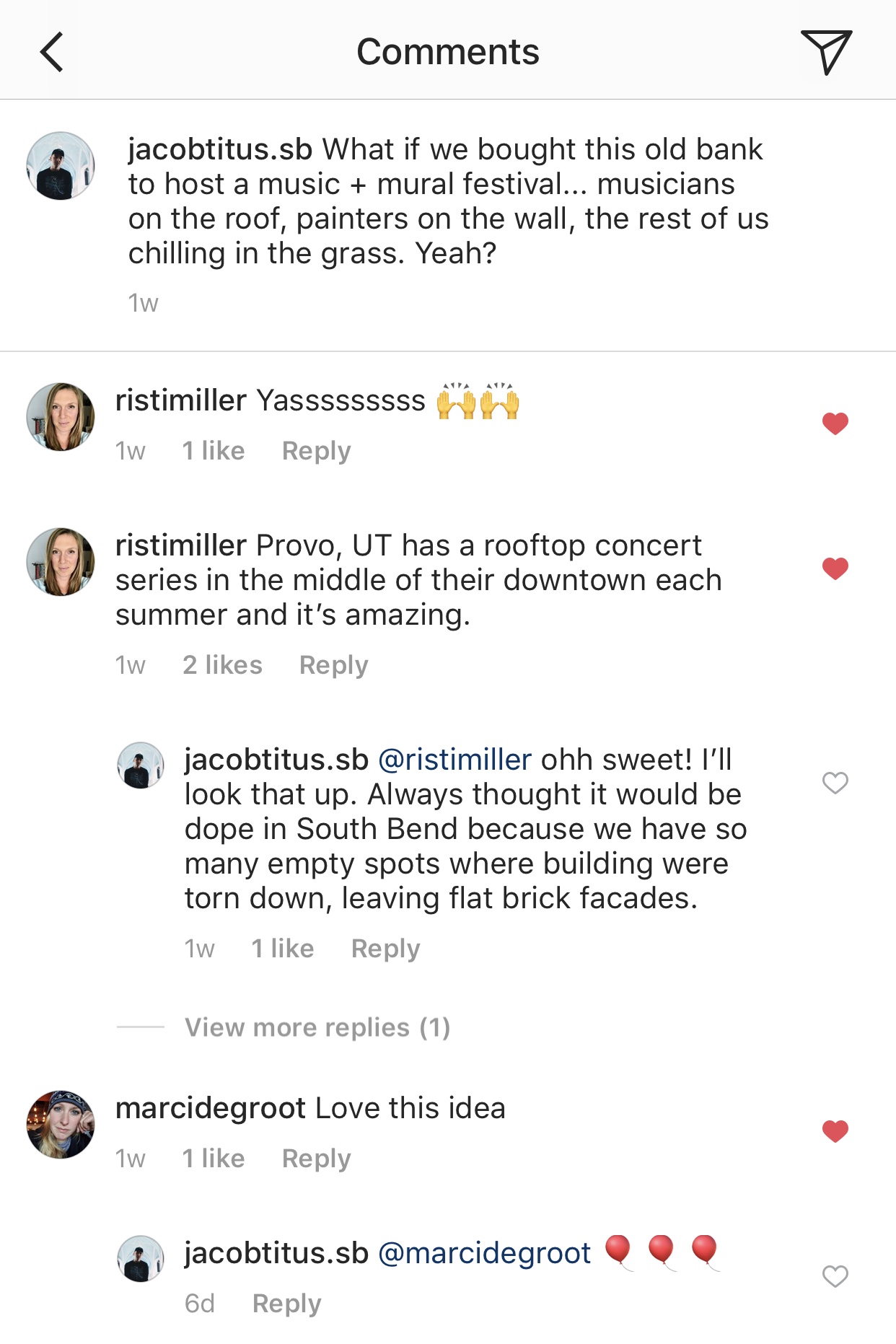Dripping in Potential
Hang around a Rust Belt city long enough and you'll develop a love, hate relationship with the word potential. When once-bustling cities experience population loss driven by industrial decline, we're left with a trail of awe-inspiring structures, rich neighborhood cultures, and a lot of people who remember how things "used to be."
These three remnants of the past create a perfect ecosystem for potential to run rampant. As humans we are designed to feel pain in the midst of empty factories and fading storefront signs. We are designed to recall memories about places and people we once knew. We have a sense that this isn't right, and that something must be done. This is the beautiful side of potential.
Last week I posted this photograph on Instagram with the caption: "What if we bought this old bank to host a music + mural festival... musicians on the roof, painters on the wall, the rest of us chilling in the grass. Yeah?"
Man, I was reluctant to share that post—specifically the caption. Here I am with no capital to purchase a historic bank, no experience hosting a festival, and no clue whether bands on the roof with painters hanging down the wall is even legal. I think about this as the reckless 'what if?' potential.
Many of you are nervously laughing right now because you know this reckless 'what if?' life too well. Some of you aren't sure why I would call this behavior reckless. Others wish I would shut up about potential altogether and just do something. It is my experience that Rust Belt folks cycle through these reactions in a predictable pattern:
First, we show up and are immediately stricken by the amount of potential and (what seems to be) lack of action. We drive around looking at buildings, saying "why doesn't someone..." or we post in Build(UP) South Bend about renovated factories in Brooklyn. This is the breeding ground for reckless 'what if?' potential.
Second, we start doing something and quickly recognize the practical difficulties associated with many of the ideas tossed out on Facebook. This is the nervous laughter phase – we're still holding onto our pet 'what if' but because we're starting to do something, we're getting to know a few of the third stagers:
And third, cynicism. Or pragmatism, if you're talking to someone in this phase. We fall into two buckets: people who have been here forever, or people who have built businesses (successfully or not). We are the "shut up about potential" folks.
This cycle is good and healthy for a city – as long as it remains a cycle. We all know people who (for a variety of reasons) never graduate from the idea phase. To many, these people are inspiring and heralded as 'movers and shakers.' But to most of my world, the never-graduated ideas people are distractions to be avoided at all costs.
On the other end, we all know people who reach the third stage and stop. To many, these people are the gatekeepers. They continue to build businesses and contribute to the city, but do so from a cynical posture toward new ideas.
Here we find the root of my reluctance to share a fun idea on Instagram – in service to my cynical/pragmatic tribe, I'll do just about anything to avoid being perceived as the ideas guy. What will people do if they ask more about this festival only to find that it was conceived as I finished editing the photo? Again – no capital, experience, or even knowledge about legality. Just more 'what if?' potential.
As I approach my fourth year in South Bend since returning from college, I wonder if there is a fourth stage? A stage that retains the pragmatism that building meaningful things is hard, but has a measured openness to new ideas. Ideas without a dollar or building permit in sight.
I am committed to finding out because I am committed to South Bend—not opinions.



